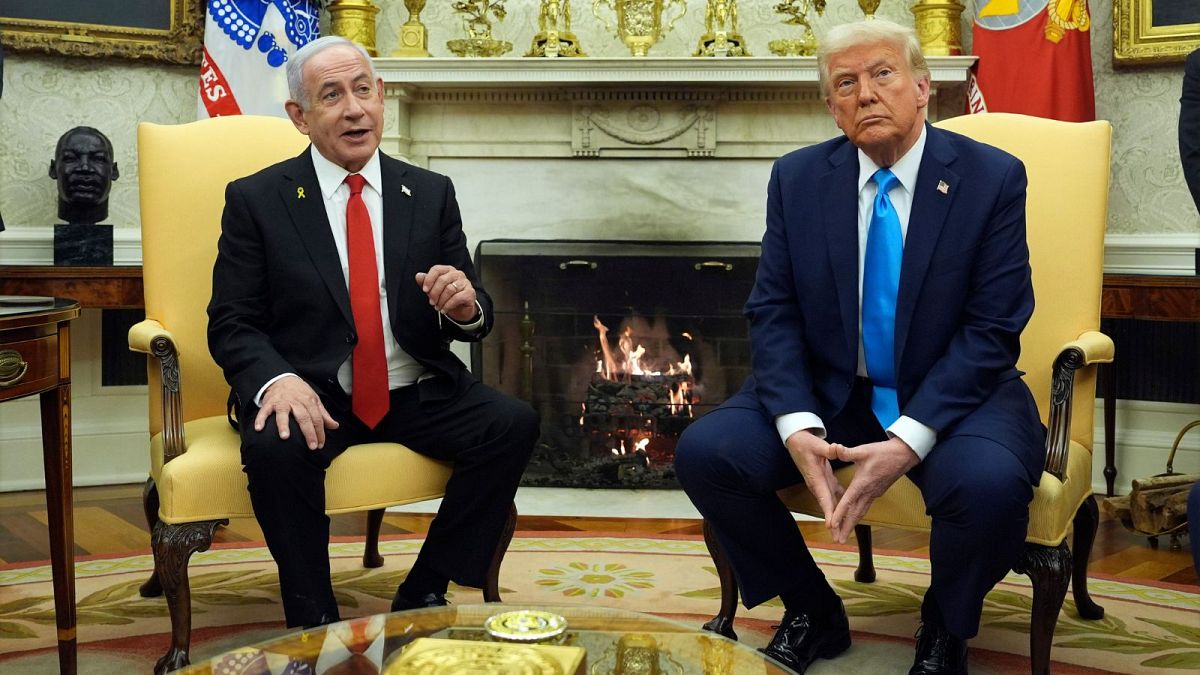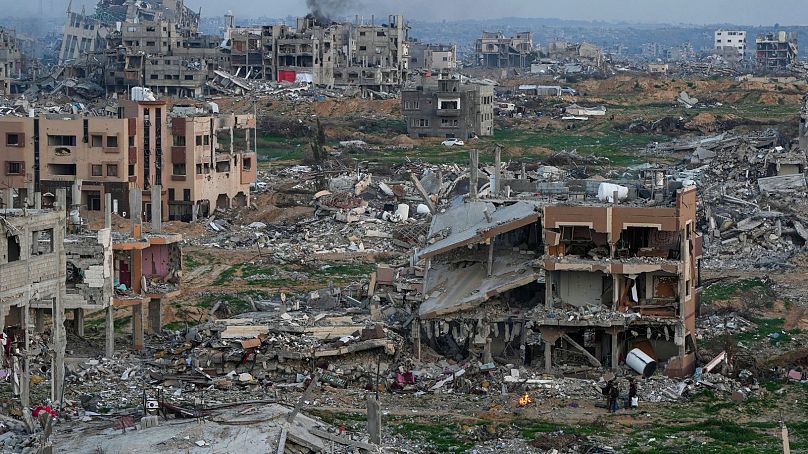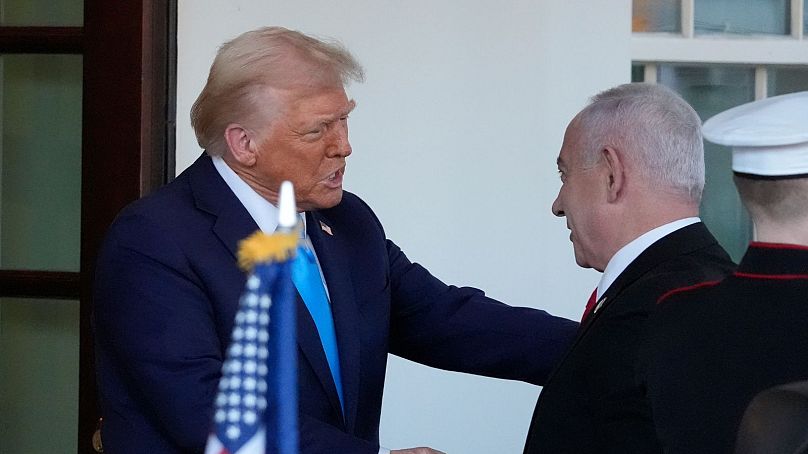
President Donald Trump has suggested that displaced Palestinians in Gaza should be “permanently” resettled outside the war-torn territory.
Trump made the comments at the start of his meeting with Israeli Prime Minister Benjamin Netanyahu at the White House, where the two leaders are discussed the fragile ceasefire and hostage deal in Israeli-Hamas conflict.
“I don’t think people should be going back,” Trump said. “You can’t live in Gaza right now. I think we need another location. I think it should be a location that’s going to make people happy.”
Trump’s comments came as he and top advisers made the case that a three-to-five-year timeline for reconstruction of the war-torn territory, as laid out in a temporary truce agreement, is not viable.
“You look over the decades, it’s all death in Gaza,” Trump added. “This has been happening for years. It’s all death. If we can get a beautiful area to resettle people, permanently, in nice homes where they can be happy and not be shot and not be killed and not be knifed to death like what’s happening in Gaza.”
Egypt and Jordan, as well as other Arab nations, have flatly rejected calls by Trump to relocate the territory’s 2.3 million Palestinians during post-war rebuilding of the territory.
But senior administration officials continue to press the case for relocation of Palestinians on humanitarian grounds.
“To me, it is unfair to explain to Palestinians that they might be back in five years,” Trump’s Mideast envoy, Steve Witkoff, told reporters. “That’s just preposterous.”
The White House’s focus on reconstruction comes as the nascent truce between Israel and Hamas hangs in the balance.

The Israeli prime minister is also facing competing pressure from his right-wing coalition to end a temporary truce against Hamas militants in Gaza and from war-weary Israelis who want the remaining hostages home and for the 15-month conflict to end.
Trump, meanwhile, remains guarded about the long-term prospects for the truce, even as he takes credit for pressuring Hamas and Israel into the hostage and ceasefire agreement that went into effect the day before he returned to office last month.
“I have no guarantees that the peace is going to hold,” Trump told reporters on Monday.
Since returning to office, Trump has called for relocating Palestinians from Gaza to neighbouring Egypt and Jordan, even as Egyptian President Abdel Fattah el-Sissi and Jordanian King Abdullah II have rejected it.
Saudi Arabia, the United Arab Emirates, Qatar, the Palestinian Authority and the Arab League have joined Egypt and Jordan in rejecting plans to move Palestinians out of their territories in Gaza and the occupied West Bank.
Yet Trump insists he can persuade Egypt and Jordan to come around to accept displaced Palestinians because of the significant aid that the US provides Cairo and Amman. Hard-line right-wing members of Netanyahu’s government have embraced the call to move displaced Palestinians out of Gaza.

Netanyahu’s arrival in Washington for the first foreign leader visit of Trump’s second term comes as the prime minister’s popular support is waning.
Netanyahu is in the middle of weekslong testimony in an ongoing corruption trial that centres on allegations he exchanged favours with media moguls and wealthy associates. He has decried the accusations and said he is the victim of a “witch hunt.”
Being seen with Trump, who is popular in Israel, could help distract the public from the trial and boost Netanyahu’s standing.
“We have the right leader of Israel who’s done a great job,” Trump said of Netanyahu.
It is Netanyahu’s first travel outside Israel since the International Criminal Court issued arrest warrants in November for him, his former defence minister and Hamas’ slain military chief, accusing them of crimes against humanity during the war in Gaza. The US does not recognise the ICC’s authority over its citizens or territory.
The prime minister is also expected use the visit to press Trump to take decisive action on Iran. Tehran has faced a series of military setbacks, including Israeli forces significantly degrading Hamas in Gaza and Hezbollah militants in Lebanon as well as an operation that decimated Iran’s air defences. The moment, Netanyahu believes, has created a window to decisively address Tehran’s nuclear program.
Ahead of his meeting with Netanyahu, Trump signed an executive order that he said would increase economic pressure on Iran.





